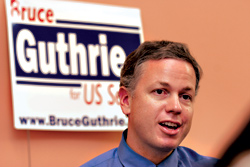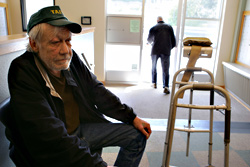This spring, it looked as though Seattle would go on a cop-hiring binge. Mayor Greg Nickels had proposed 25 new patrol positions, essentially replacements for 27 positions he chopped in his 2003 budget. And City Council member Nick Licata was trying again to get a levy proposal on the ballot that would add perhaps 30 more officers—and toss in some social workers to hit the streets, for good measure.
Now comes the purge. Last week, Licata spiked his levy plan, due to lack of support on the council. No one else, he says, fancied the idea of laying a property tax increase before voters, and the mayor wasn’t supportive, either.
“I’ve never felt so frustrated,” says the council’s most liberal member, who’s running for a third term this fall. “Line police officers and the ACLU get this.” Licata’s plan called for new cops to walk—or bike—a beat just like the old days, mostly to address concerns in a number of neighborhoods about a lack of police presence. As a rule these days, Seattle police are busy answering 911 calls, and patrol staffing—the cops fielding those calls—is at the same level it was in the 1970s.
Nickels’ proposal adds cops, but not with the same community-policing mandate that Licata favored. The mayor’s plan will cost $2.5 million and will be covered by the city’s general fund.
Not everyone is enamored of hiring new cops. A coalition of local advocacy groups, collectively known as the Budget for Justice Campaign, says that the city doesn’t need to hire more police. Instead, they say, it needs to disband SPD’s anticrime teams (ACTs) and redeploy those 30 cops to regular patrol, leaving current duties that include cracking down on drug dealers and street users. The group’s reasoning is that the ACTs wind up arresting minority drug offenders, particularly African Americans, at a rate far out of proportion to their involvement in drug activity, while white druggies really have to go out of their way to see the inside of a jail cell.
“The main result of this is sentencing a generation of young African Americans to prison,” says Lisa Daugaard, who works with the campaign and is a well-known public defender.
A 2003 study by University of Washington sociologist Katherine Beckett found that 63 percent of SPD drug arrests were of African Americans.







